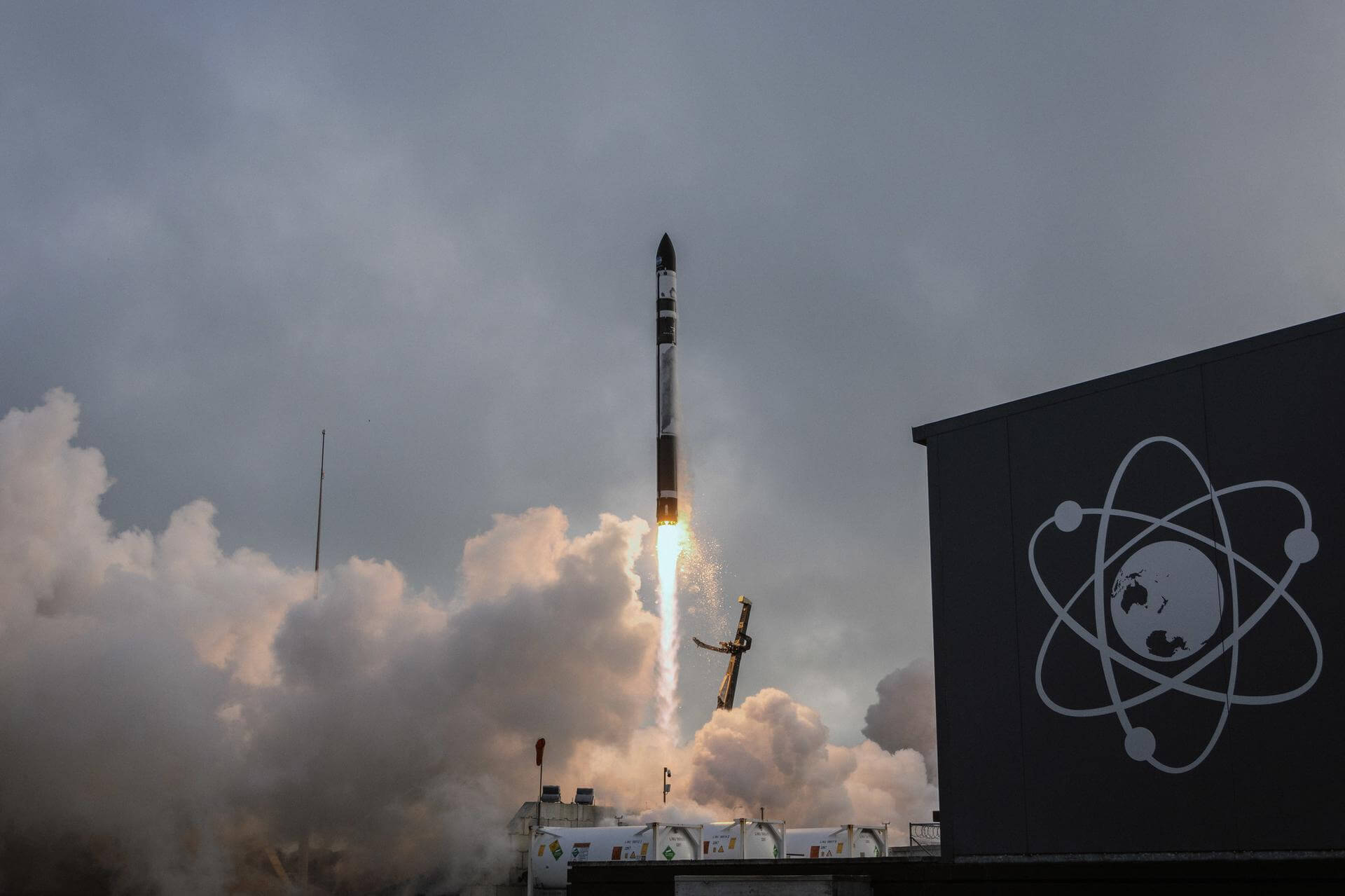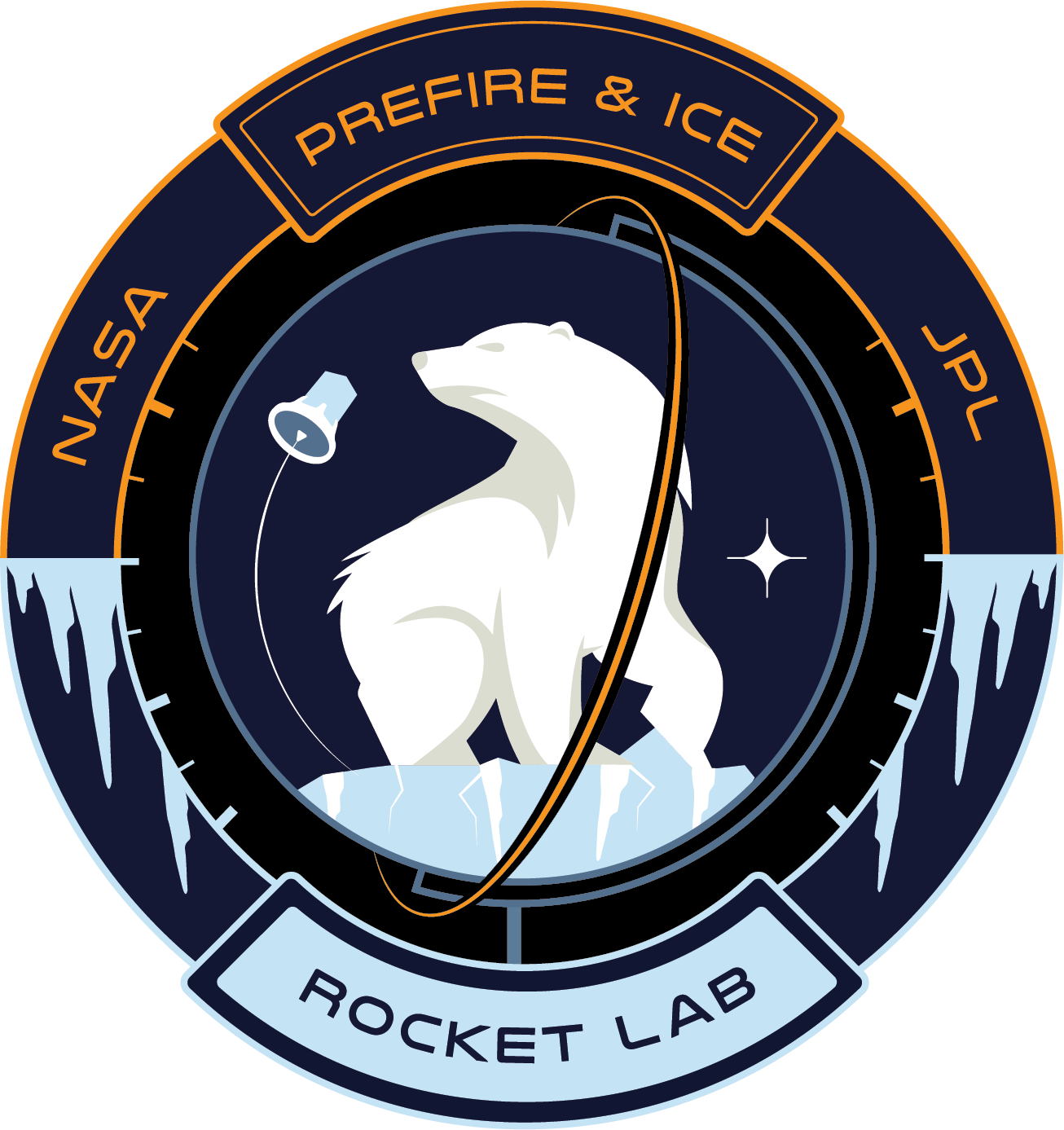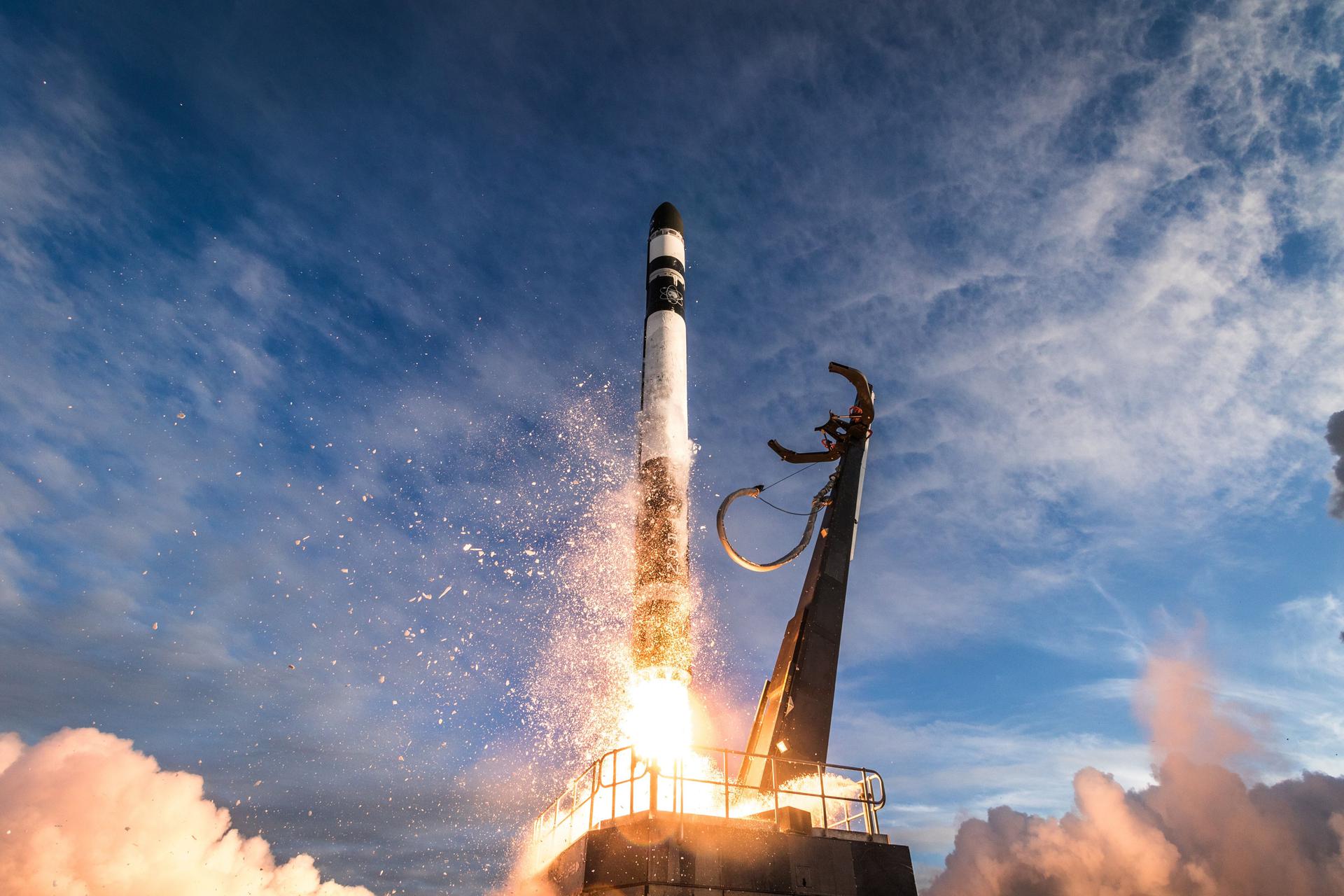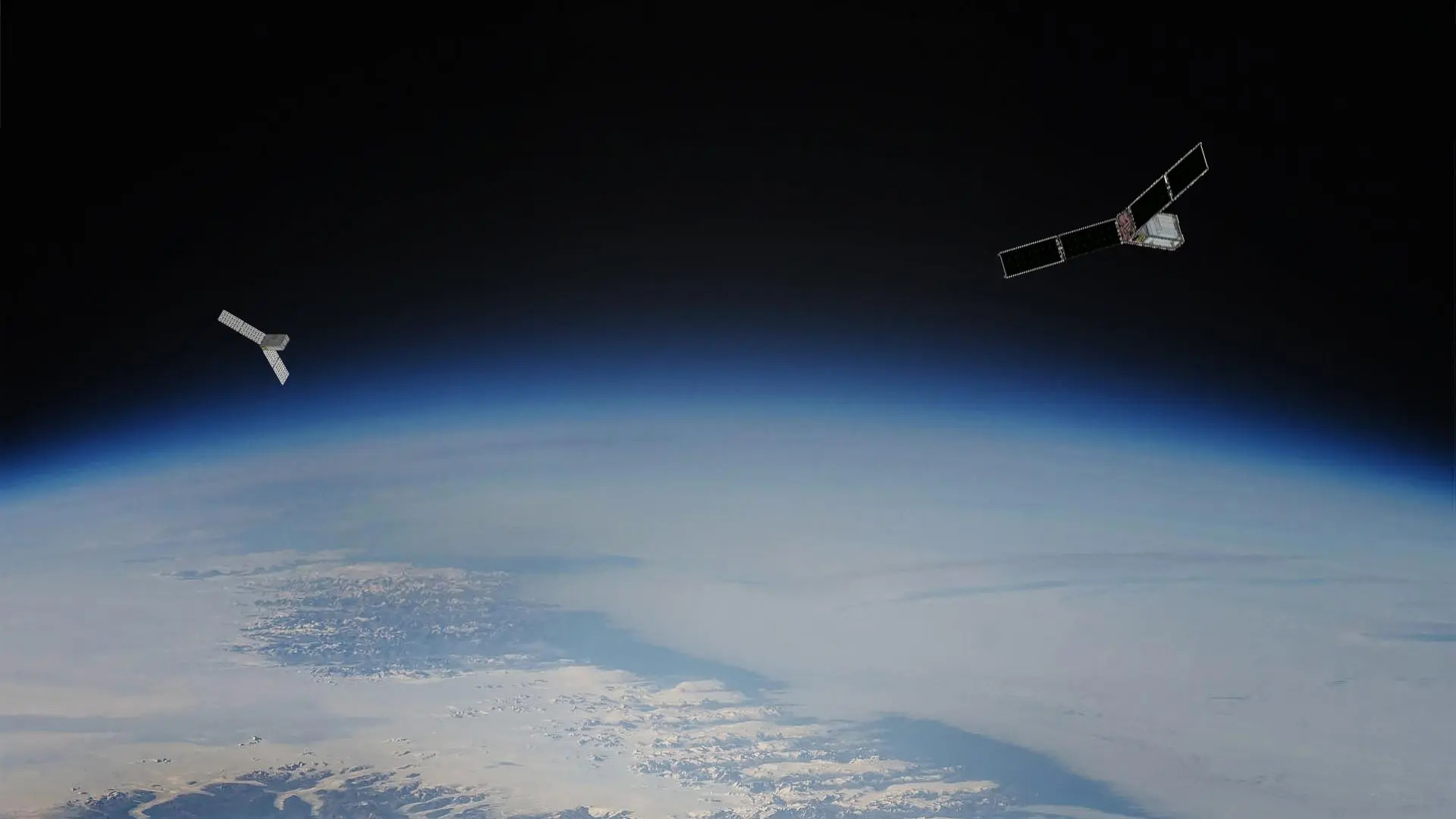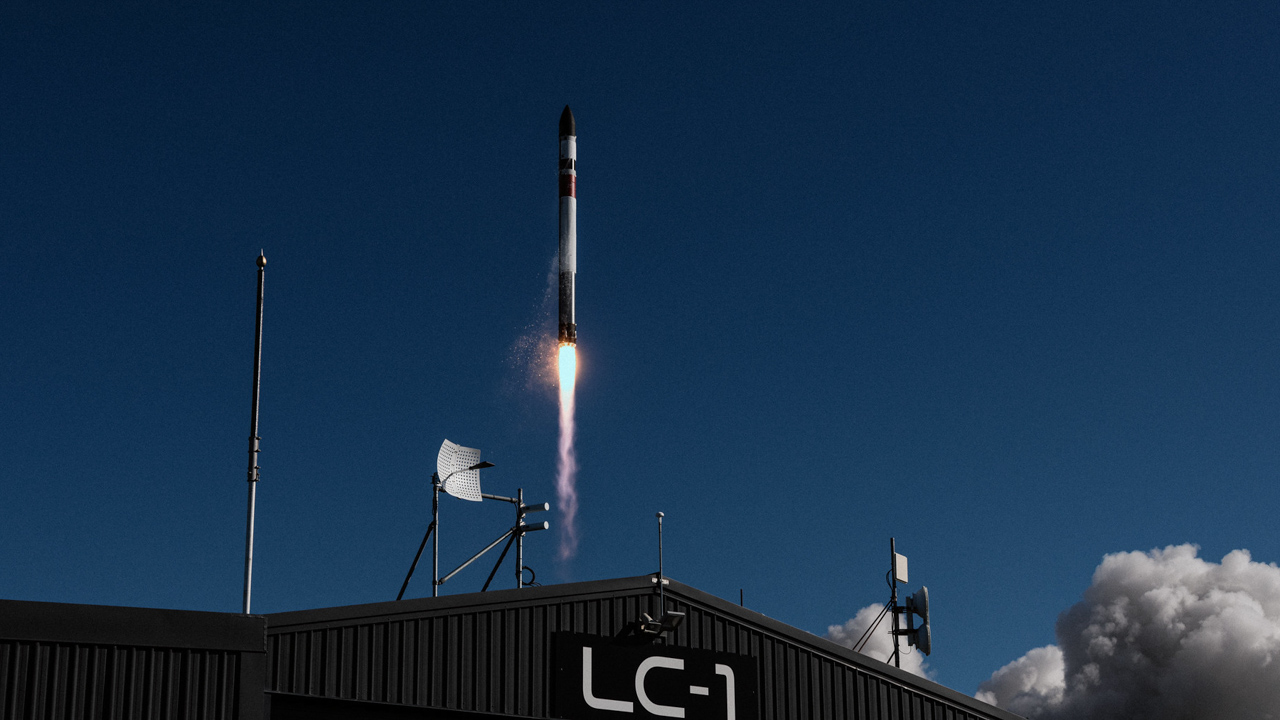Electron | PREFIRE And Ice (PREFIRE 2)
Rocket Lab Launch Complex 1B
Onenui Station, Mahia Peninsula, New Zealand
T?
--
Days
:
--
Hours
:
--
Mins
:
--
Secs
Date Loading...
Rocket Lab
Rocket Lab is an American aerospace manufacturer with a wholly owned New Zealand subsidiary. The company develops lightweight, cost-effective commercial rocket launch services. The Electron Program was founded on the premise that small payloads such as CubeSats require dedicated small launch vehicles and flexibility not currently offered by traditional rocket systems. Its rocket, the Electron, is a light-weight rocket and is now operating commercially. The company is also producing a variety of spacecrafts and spacecrafts components.
PREFIRE And Ice (PREFIRE 2)
Second 6U Cubesat carrying a miniaturized IR spectrometer, covering 0- 45 μm at 0.84 μm spectral resolution, operating for one seasonal cycle for NASAs PREFIRE (Polar Radiant Energy in the Far-InfraRed Experiment) mission.
Electron
Height 18.00 Meters
Max Stages 3
Mass To GTO 0 kg
Liftoff Thrust 162 kN
Diameter 1.20 Meters
Mass To LEO 300 kg
Liftoff Mass 13 Tonnes
Launch Success 48
Consecutive Success 11
Maiden Flight 2017-05-25
Launch Failures 4
Updates
Nosu
2024-06-05T13:17:07+0000
Successful launch
Cosmic_Penguin
2024-06-05T04:11:30+0000
Spacecraft separation confirmed.
Cosmic_Penguin
2024-06-05T03:16:17+0000
Liftoff.
LL2
2024-06-05T02:45:50+0000
Official Webcast by Rocket Lab has started
Cosmic_Penguin
2024-06-04T23:26:21+0000
Updated launch weather.
Cosmic_Penguin
2024-06-04T23:24:03+0000
Updated T-0.
Cosmic_Penguin
2024-06-01T06:47:51+0000
NET June 5.
Cosmic_Penguin
2024-06-01T03:50:15+0000
Scrubbed for the day.
Cosmic_Penguin
2024-06-01T03:46:12+0000
Hold at T-2:07.
Cosmic_Penguin
2024-06-01T03:34:21+0000
Tweaked launch time.
Cosmic_Penguin
2024-06-01T03:33:18+0000
Countdown resumed.
Cosmic_Penguin
2024-06-01T03:11:46+0000
Hold at T-4:45.
LL2
2024-06-01T02:45:54+0000
Official Webcast by Rocket Lab has started
Cosmic_Penguin
2024-05-31T23:03:25+0000
New T-0.
Cosmic_Penguin
2024-05-30T06:38:26+0000
Updated launch pad.
Cosmic_Penguin
2024-05-30T02:01:04+0000
GO for launch.
Cosmic_Penguin
2024-04-30T01:14:04+0000
NET June 2024.
Cosmic_Penguin
2024-03-30T06:19:05+0000
NET August.
Cosmic_Penguin
2024-02-13T01:21:43+0000
Updated launch date.
hitura-nobad
2023-08-15T04:55:43+0000
Added launch
Related Events
NASA Prefire Pre-Launch Press Conference
T?
NASA is hosting a media call to discuss the agency’s PREFIRE (Polar Radiant Energy in the Far-InfraRed Experiment) mission, which aims to improve life on Earth by studying heat loss from Earth’s polar regions and provide information on our changing climate. Participants include: - Karen St. Germain, director, Earth Science Division, NASA Headquarters in Washington - Mary White, project manager, PREFIRE, NASA’s Jet Propulsion Laboratory, Southern California - Tristan L’Ecuyer, principal investigator, PREFIRE, University of Wisconsin-Madison - Peter Beck, CEO and founder, Rocket Lab
Related News
2024-06-05T09:40:38+0000
SpaceNews
Electron launches second NASA PREFIRE cubesat
2024-06-03T21:36:35+0000
NASASpaceflight
Launch Roundup – Starship launches for fourth time, Starliner launches on third attempt, Virgin Galactic to fly VSS Unity for last time
2024-05-18T21:27:13+0000
SpaceNews
NASA prepares for twin launches of climate science cubesats
2024-05-01T16:43:33+0000
Teslarati
Rocket Lab prepares for back-to-back launches for NASA
2023-08-15T16:44:14+0000
The Launch Pad
NASA Selects Rocket Lab For Polar Energy Monitoring Missions
2023-08-15T11:35:35+0000
SpaceNews
Rocket Lab to launch pair of NASA Earth science cubesats
2023-08-14T20:11:00+0000
NASA
